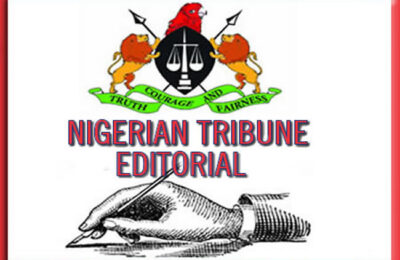- Administration of Justice Crisis:
Human Rights have suffered severe crises due to issues and challenges affecting the administration of justice generally but criminal justice to be precise. Such challenges include but are not limited to the following factors:
- Indigence: Most citizens cannot afford the cost of pursuing legal remedy in the event of violation of their rights. This has to do with the issue of unfettered access to justice as the cost of acquiring legal education is prohibitive and it costs even more to sustain the type of legal practice that will be effective. In total, the government has to do more than the present template to support access to justice. Interventionist organisations such as Legal Aid Council, Office of the Public Defender, Citizens Mediation Centre need robust legislation that will give validity to their efforts in addition to adequate funding.
- Delays: there is the rising incidence of delays in judicial proceedings due to several factors such as overload of court dockets without adequate judicial manpower, absence of critical infrastructure, especially power supply, machines and equipment and shortage of manpower. This should be addressed holistically in order to achieve effectiveness in the administration of justice sector
- Bail: The conditions for bail and release of citizens under trial are too stringent and they do not seem to recognize the provisions of the Constitution on presumption of innocence before trial. If bail is recognized as part of the enforcement of the right to personal liberty, there is no need to impose onerous conditions to admit a citizen on bail pending his trial.
- Unlawful Detention/Prison Congestion: Many of the detainees in the various correctional centres all over Nigeria have been awaiting trial for years and they are languishing in overcrowded facilities built since the colonial period. The reports suggest that over 70% of prisoners are on remand. Reputable groups like Amnesty International highlight instances of prisoners being detained for decades without trial, in circumstances wherein they may be acquitted after trial.
- Mass Illiteracy: There is the problem of mass legal illiteracy as many people are not even aware of the existence of their Human Rights or are not able to fight for their rights. This has led to denial of rights, extortion and even death in severe cases. Organisations with a track record of human rights protection should take the campaign to the grassroots for the benefit of the masses which constitute the bulk of victims of human rights abuses.
- Mass Distrust: Due to lack of confidence in the justice system based on some of the discouraging factors, citizens now take the law into their own hands rather than pursuing justice. Individual activists seem to achieve speedy results through spirited campaigns in the social media than the regular courts. Sadly too, a good number of our citizens also troop to the security agencies to resolve their civil disputes instead of following the much-trumpeted due process of law.
- State-Actor Interference: The state actors and even non-state actors are muzzling the citizens. A police officer raped a detainee/suspect to the point of coma, suspects are not safe in the custody of the state, the privacy of citizens is invaded recklessly by searching their phones and other valuables, status profiling of youths based on their physical appearances. There should be a written code for state actors and non-state actors to guide their interactions with the citizens in such a way that will guarantee and preserve the fundamental rights of all persons.
- Security Agencies Crisis:
Closely knit with the crises associated with administration of justice are the challenges induced by security agencies in Nigeria. Nigerian security agencies especially the police have literally become synonymous with impunity and brutality, which is rather unfortunate considering the fact that the law establishing these agencies require them to preserve law and order. Some of these problems include:
Usurpation: It is not uncommon nowadays for the security agencies to usurp the jurisdiction of courts both in civil and criminal matters. Many of them defy the jurisdiction of courts by going ahead to violate the rights to the dignity of the human person, liberty; fair hearing etc through unlawful arrest and detention of litigants in respect of causes that have been submitted to the jurisdiction of the court. Besides, law enforcement agencies have formed the habit of violating the orders of court inordinately.
Criminalization of Civil Disputes: Security agencies, as a matter of course, frequently arrest and detain citizens at the instigation of private citizens who are on a mission of vendetta against their perceived enemies. Law enforcement agencies make themselves willing collaborators in the hands of unscrupulous private individuals. As such, they put criminal connotation on otherwise civil causes. There are cases of forced evictions and use of police for land grabbing, marital disputes and unlawful execution of improperly obtained court orders.
Extra-Judicial Killings: There is the unfortunate harvest of extra-judicial killings some of which are even engineered and/or sponsored by state actors. For instance, in respect of the ENDSARS Protest, it is now confirmed by an official of the Lagos State Government that people were hunted down and executed, confirming the report of the ENDSARS Panel.
Persecution rather that Prosecution: In many instances, the real facts of some cases that have found themselves in the dockets of the criminal courts are purely instigated by parties to civil disagreements. The state and its agencies should act on behalf of society at large and not become willing tools of oppression. The trinity concept of justice for the complainant, the victim and society at large, should always guide the prosecutors.
iii. Bar Crisis:
Unfortunately, the Bar itself has also contributed to the growing incidence of HRs crisis. We would have thought that the Bar ought to be a redeeming element in the crisis but unfortunately, many of our colleagues are complicit in the HRs crisis. A chief factor here is the NBA’s growing inactivity. While we must say kudos to the endeavours of the NBA in keeping with the objectives of its constitution to uphold HRs, there is indeed great need to expedite action in its crusade against HRs violations by intensifying efforts towards activities such as prison visitations, legal aid through pro bono cases; encouragement of Public Interest Litigation; unanimous condemnation of and resistance against executive rascality and interference with the judiciary.
- Press Freedom and Public Interest Litigation Crisis: There is also the growing wave of crackdown on free press and Public Interest Litigation. News houses and PIL institutions such as SERAP have encountered relentless resistance, especially from state actors. However, aggressive resilience to repel these forces through solidarity from the HRs stakeholders such as the NBA in partnership with the judiciary will make a strong tag team against these forces.
- Possible solutions to the challenges in the Nigerian context
Nigeria is unarguably a member of and subscriber to the UN and the UDHR. It has a mandate to uphold HRs to the maximum. Some critical reformative measures that must be taken to stem the tides of HRs abuse are suggested below:
- Call for Reform of NBA Members: That there now exists the Judas-Branch among the NBA brotherhood has become a commonplace thing. Situations where lawyers collude with litigants to abuse the HRs of fellow citizens is most pathetic. It is lawyers who author false petitions on behalf of clients; it is lawyers who fail to advise their clients to cease and desist from criminalizing purely civil causes and it is lawyers who bait the police. Some of our colleagues often encourage the impunity of deploying the instrumentality of law enforcement agencies to pursue private vendetta. The point is that members of the Bar should have deep self-evaluation leading to reformation of their practice.
- Creation of a Court with Special HRs Jurisdiction: Just like the National Industrial Courts and Family Courts, it is suggested that moves should be made to champion the creation of courts with special HRs jurisdiction. The Court shall be exclusively dedicated to the expeditious hearing and disposal of HRs causes. It is suggested that the NBA should take the lead in this regard. In the interim, it is strongly urged on the NBA to work with the courts to prioritize hearing of HRs cases.
iii. Making Chapter 2 of the Constitution Justiciable: We submit that if the crusade of HRs would outgrow its present adolescence the relevant portions of Chapter 2 of the Constitution on the Fundamental Objectives and Directive Principles of State Policy should be made justiciable just like Chapter 4 thereof.
- HRs Education: Due to the tremendous amount of mass illiteracy, it is suggested that the NBA in collaboration with advocacy groups, should facilitate translation of Chapter 4 of the Constitution into major local languages and circulate the same. That way, a large number of the uneducated masses would become informed about their HRs and understand the opportunity they have to seek redress through the law in the event of violations.
- Revival of the NBA Visitation Committee: It is advocated that NBA should revive its visitation committees. At the next AGC, a session should be dedicated to meeting all Branch chairmen to coordinate this process. Also, NBA should encourage interaction with the police and law enforcement agencies for workshops and trainings on HRs by law experts
- Conclusion:
As we join the HRs global family to commemorate the 76th episode of the HRs Day with the theme: Our Rights, Our Future, Right Now, we must remember that our attitude to securing our rights by standing up courageously against the forces and crises that beleaguer our rights will determine the kind of future we bequeath to our children. The hands of all stakeholders, particularly the Bar, must be on deck to collectively repel the forces that have come against the crusade for progress and security of Human Rights.
READ ALSO: Human rights in crisis: Addressing the challenges facing Nigeria (2)








